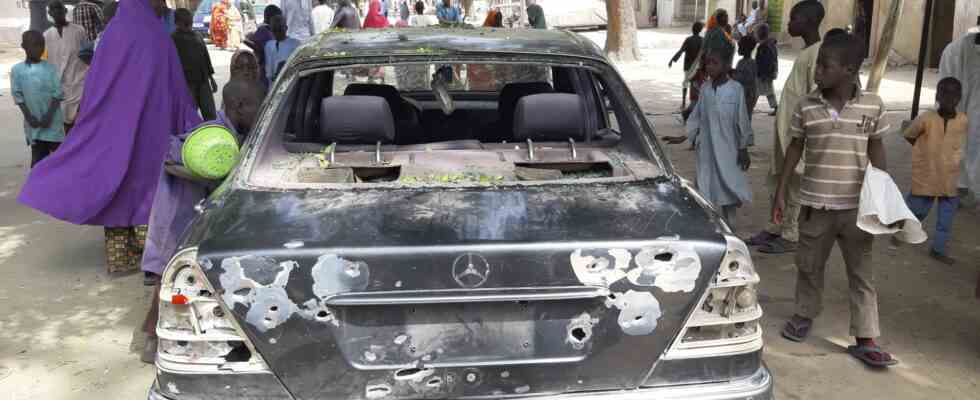Status: 06.02.2023 6:11 p.m
At least 25,000 people are missing in Nigeria, including 14,000 children – more than anywhere else in Africa. The terrorist group “Boko Haram” is mainly responsible. The government now wants to react – with a database.
Joshua Audu doesn’t sound hopeful when he talks about the misfortune that happened to him and his family for the thousandth time: “I can’t even say what I’ve been through. It’s an event from one state to another. From one pain to the next.”
It all started on September 5, 2014, when gunmen invaded his village, says Audu: “I lost my livelihood, my home, my poultry farm. Thank God I was able to escape with my wife and children. While we were still mourning our loss , my mother died less than a week later. We couldn’t go to her, couldn’t help her. She died of simple malaria.”
Shortly thereafter, his wife’s younger brother also disappeared: “He helps me and is part of my company. So one thing led to another and that’s where I stand today.” Joshua Audu is a so-called IDP, “internally displaced person”. This is what people are called who have been displaced within their own country. There are millions of them in Nigeria.
Nigeria with capital Abuja.
Relatives are desperately waiting for news
This includes the family of Kaltume Mustapha Yarima. She comes from Maiduguri, a city in the northeast of the country. The terror of the Islamist militia “Boko Haram” regularly shakes this region. “I miss my brother, my sister and their four children and my uncle,” says Yarima. On May 18, 2019, his sister left her house – since then there has been no trace of her. “To this day she has not called, we do not know where she is. And my brother – he was the backbone of the family, he took care of everything. Only the Red Cross helps us, they advise us, come to our house. But the government doesn’t do anything,” says Yarima.
Government wants better overview of missing persons cases
That is about to change, Nigeria’s government announced in the capital, Abuja. Because the problem is becoming more and more of an epidemic for the West African country, explains Colonel Sadeeq Garba Shehu, the President’s special assistant for humanitarian affairs: “In Africa we are currently talking about 64,000 people who are missing. And 25,000 of them are missing in Nigeria. It’s a big shock because it’s said we make up more than 60 percent of the missing in Africa.”
Nigeria does not have its own national register of missing persons and is therefore dependent on data from non-governmental organizations such as the International Red Cross. “They do a good job, but that doesn’t release any country from its responsibility to have its own database,” says Shehu. That is why the government will now set up its own missing persons register in order to be able to approach the search in a more targeted manner.
The number of unreported cases is probably much higher
Yann Bonzon from the International Red Cross in Nigeria welcomes the initiative. For two years he has been observing how the situation is getting worse, not only in the north of the country. Terrorism, ethnic conflicts, human trafficking and migration mean that thousands of families are looking for their loved ones. “It’s a very big problem. We, the International Red Cross, have been particularly looking at the north-east of the country, which has been a conflict zone for more than 12 years. We counted more than 25,000 missing people by contacting families.”
This is probably just the tip of the iceberg, says Bonzon: “We probably have far more people missing, not just in the north-east, but across the country, especially in regions affected by insecurity and violence.”
“Boko Haram” is terrorizing the region
And there are many of these regions in Africa’s most populous country. Nigeria’s army has been fighting the Boko Haram terrorist militia for decades. She carries out bloody attacks and kidnaps people, especially children. They are said to make up more than half of the missing people in the country.
In 2014, this even made headlines around the world: in a mass kidnapping in the north-eastern state of Borno, the terrorists from “Boko Haram” kidnapped 276 schoolgirls from the town of Chibok. The #BringBackOurGirls social media campaign found supporters around the world. Some of the girls and young women were later able to escape or were freed, but many of them are still missing. A registry for this growing, unsolved problem is long overdue.
Nigeria: Number of missing rises to 25,000 people
Dunja Sadaqi, ARD Rabat, February 6, 2023 5:01 p.m

